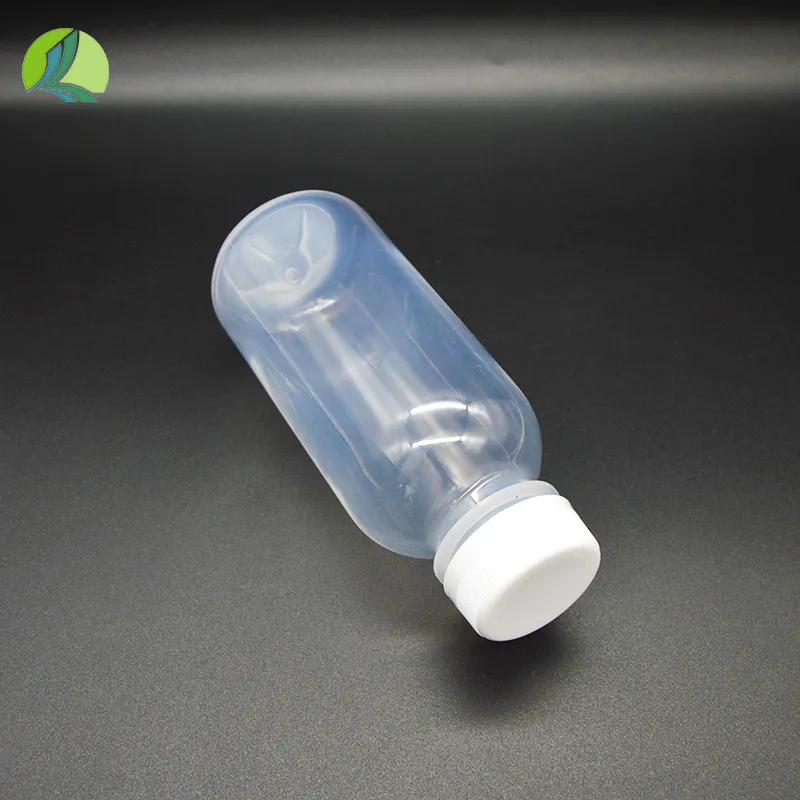Exploring the Impact of Single-Use Plastic Juice Containers on the Environment and Recycling Efforts
The Impact of Disposable Plastic Juice Bottles on the Environment
Disposable plastic juice bottles have become an ubiquitous presence in our daily lives, serving as convenient containers for beverages. However, the environmental implications of their widespread use have raised concerns among consumers, environmentalists, and policymakers alike. In this article, we will explore the advantages and disadvantages of disposable plastic juice bottles, as well as potential alternatives that can help mitigate their impact on our planet.
Convenience and Popularity
The primary appeal of disposable plastic juice bottles lies in their convenience. These bottles are lightweight, portable, and designed for single use, making them an attractive option for consumers on the go. Whether it's for breakfast, a picnic, or a post-workout refreshment, these bottles offer a quick and easy way to enjoy juice without the need for washing or refilling. Additionally, they often come with colorful branding and marketing that appeal to both adults and children, leading to an increase in consumption.
Environmental Concerns
Despite their convenience, disposable plastic juice bottles contribute significantly to environmental pollution. According to the Environmental Protection Agency (EPA), millions of tons of plastic waste are generated each year, with only a fraction being recycled. A significant portion ends up in landfills, where it can take hundreds of years to decompose. This not only contributes to land pollution but also leads to the growing issue of ocean plastic, posing a threat to marine life and ecosystems.
Moreover, the production of plastic bottles involves the extraction of fossil fuels and considerable energy consumption, resulting in harmful greenhouse gas emissions. The life cycle of a plastic bottle, from production to disposal, raises serious questions about its sustainability. As the world grapples with climate change and environmental degradation, the need to re-evaluate our reliance on disposable plastics has never been more urgent.
Exploring Alternatives
disposable plastic juice bottles

In response to the environmental challenges posed by disposable plastic juice bottles, there has been a growing movement towards sustainable alternatives. Reusable glass, stainless steel, and biodegradable plastic bottles are becoming more accessible and popular among consumers. These options not only reduce waste but also promote a culture of sustainability and environmental awareness.
Many brands are now focusing on eco-friendly packaging and are committed to using recyclable materials or adopting a circular economy model. By encouraging consumers to return bottles for reuse, companies can help decrease plastic waste while fostering a sense of responsibility among their customers. Additionally, initiatives such as bottle deposit schemes are gaining traction, incentivizing individuals to recycle and properly dispose of their beverage containers.
The Way Forward
As consumers, we have the power to influence the market through our purchasing decisions. By opting for juices in reusable containers or supporting brands that prioritize sustainable practices, we can collectively reduce the demand for disposable plastic juice bottles. Education and awareness campaigns play a crucial role in informing the public about the detrimental effects of plastic pollution and the significance of making environmentally conscious choices.
Governments and organizations also have a critical role in addressing this challenge. Implementing stricter regulations on plastic production and waste management can drive innovation and the adoption of more sustainable practices across industries. Collaborative efforts between companies, consumers, and policymakers will be essential in creating a more sustainable future.
Conclusion
Disposable plastic juice bottles may offer convenience, but their environmental toll is significant. As we navigate the complexities of modern consumption, it is imperative that we prioritize sustainability and explore alternative solutions. By making informed choices and advocating for change, we can work towards a healthier planet for future generations.
-
Aesthetic Makeup Spray Bottles | Fine Mist Empty RefillableNewsAug.19,2025
-
White Plastic Veterinary Vaccine Vials | Lab Liquid BottlesNewsAug.18,2025
-
Plastic Medicine Liquid Bottle: Secure Flip Top Drug VialsNewsAug.17,2025
-
Durable 250ml Blue Plastic Vaccine Vial for Lab & Vet UseNewsAug.16,2025
-
Sterile Virus Sample Tubes: Secure & Reliable Specimen CollectionNewsAug.15,2025
-
White 250ml Plastic Vaccine Vial for Lab & Vet MedicineNewsAug.14,2025
























